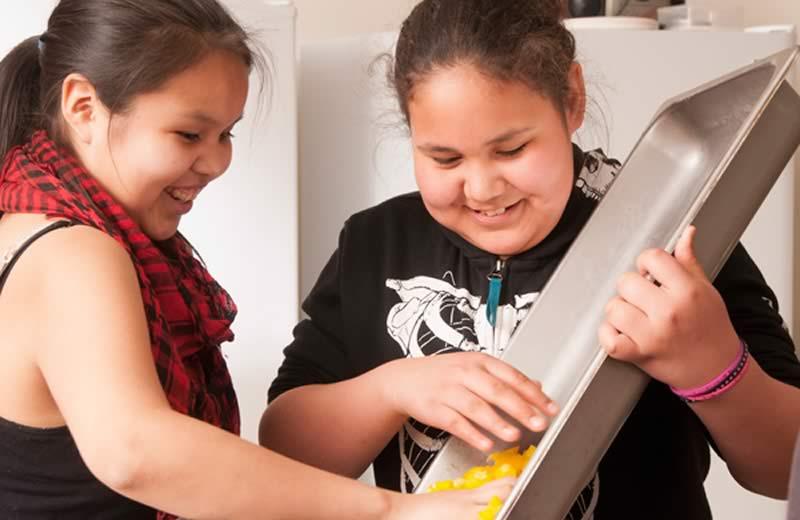In honour of the recent Provincial Eating Disorders Week, registered dietitian Rilla Reardon shared some great tips for promoting positive body image in youth. Building a positive body image helps youth thrive physically, emotionally, and socially, and can protect against the development of disordered eating. Unfortunately, feeling good about one’s body is not always easy in today’s society. The BC Adolescent Health Report, a survey of youth ages 12-19 across the province paints a distressing picture. From the 30,000 students who were surveyed, they found that:
- 36% of females and 28% of males are unhappy with their bodies.
- 35% of females and 19% of males have engaged in risky dieting behaviour in the past year.
- Disordered eating behaviours are more common among older and larger-bodied students.
Since youth spend a large portion of their time in school, it makes sense that our efforts extend beyond home to include the school environment. Read on to find out what steps schools can take to promote a positive body image and prevent disordered eating among youth.
Focus on health, not weight
Research shows that talking about weight (yours or others) or dieting is harmful for children of all ages. Help children value themselves for who they are and what their bodies can DO. We all have different strengths that deserve to be celebrated.
Say no to weight-based bullying
Speak up against weight-based bullying and include weight discrimination in your school’s anti-bullying policy. Teach children that teasing someone about their body is never okay and that all bodies deserve to be treated with respect.
Talk to children about their changing bodies
Health class is a great opportunity to let children know that weight gain is a normal part of growing up. Puberty is going to comes at different rates and times for everyone. Knowing about these changes before they occur can help children feel more at ease, and prevent risky behaviours.
Avoid the collection of student height, weight, and/or BMI
There are many factors that influence weight, and most are outside of an individual’s control. BMI is not a good measure of health, especially for children, and its collection has been shown to cause harm. Instead, schools can focus on celebrating body diversity and creating environments that make the healthy choice the easy choice for all students.
“Do no harm” with nutrition education
Provide students with hands-on experiences with growing, choosing, and preparing foods, rather than food rules. This type of information (e.g. calorie counting, “healthy” vs. “unhealthy” foods) can promote black-and-white thinking, and does not encourage a positive relationship with food. For curriculum recommendations check out the Northern Health Healthy Eating at Schools page.
Do not provide specific information about eating disorders
Research shows that talking about eating disorders is not effective for prevention, and can backfire. “She ate only X calories a day” or “He took as many as X laxatives at a time” can turn a well-intentioned story into ‘how-to’ instructions for someone to follow. A better approach is talking about body image and promoting media literacy.
Teach youth to be media savvy
Encourage students to be critical of how bodies are portrayed in the media. Getting students to ask, “Who stands to benefit from these messages?” is called media literacy, and can help children reject unrealistic body ideals. In addition, teaching youth to spot nutrition fads, and where to find reliable sources of health information (e.g. Health Services at HealthLink BC), goes a lot further than simply providing information. To get started, check out this list of teaching tools, videos, and lesson plans from Jesse’s Legacy and Vancouver Coastal Health.
Sign up for a free teacher workshop
Consider attending a “Healthy Attitudes, Healthy Bodies, Healthy Schools” workshop designed to help educators become more confident promoting positive body image in the classroom. Workshops are free and available in your local community or virtually. Call 1-800-242-6455 or email nutrition@bcdairy.ca to book a workshop.
We’d love to hear from you. How does your school promote a positive body image for students?














Comments